Sandra Peter and Kai Riemer
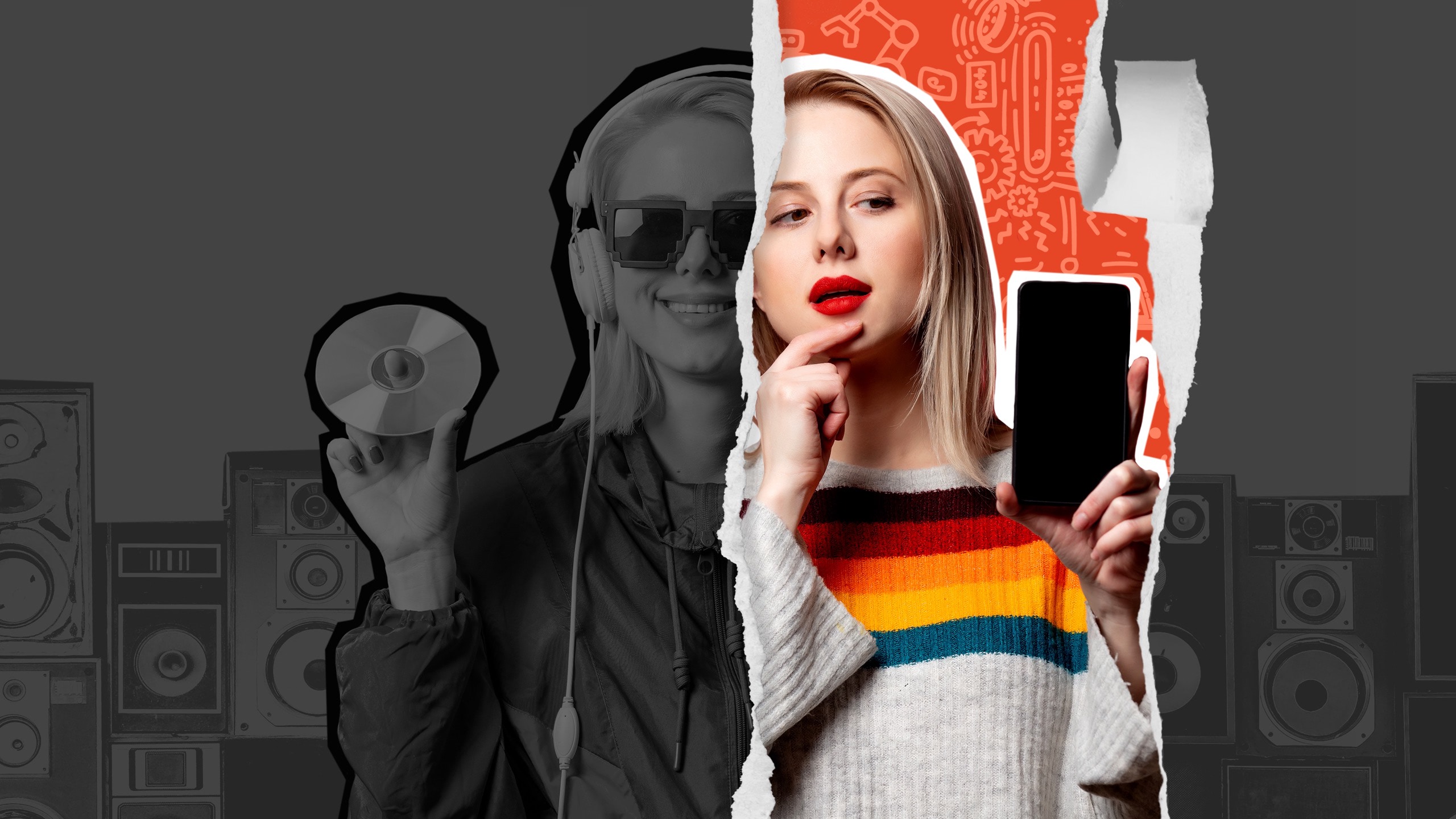
Why music is no longer just for listening: unlearn music
We discuss how the way we engage with music is fundamentally changing – from something we just listen to, to something we create with.
On platforms like TikTok, music is becoming a material for creation, for self-expression, for storytelling. And this very real shift in what people do with music, has implications not only for the music industry and what music is, but ultimately for all of us. We hear from the head of music at TikTok, record breaking artists, influencers, musicologists and narratologists.
Join Sandra Peter and Kai Riemer on the latest episode of The Unlearn Project.
The interesting people we spoke with
Ole Obermann
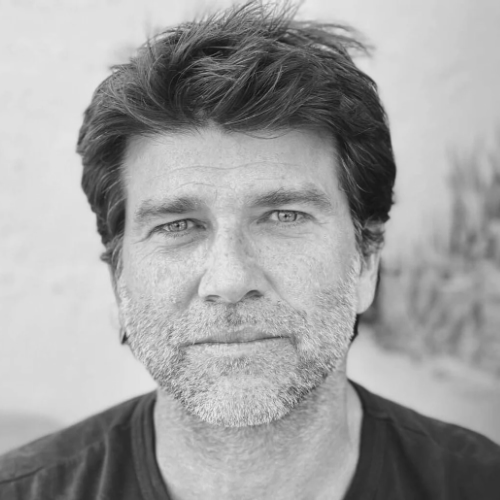
Ole Obermann is the Global Head of Music at ByteDance and TikTok where he oversees music business development and strategy. Before joining TikTok, Ole was the Chief Digital Officer at Warner Music Group and Executive Vice President of Global Digital Partner Development at Sony Music where he architected deals between streaming platforms and the respective label.
Masked Wolf
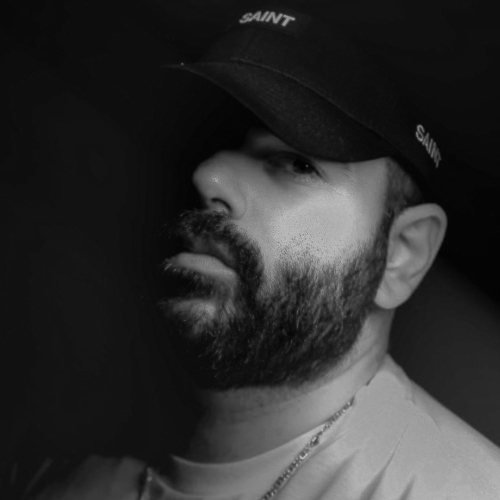
Masked Wolf (known to his family as Harry Michael), is a platinum-certified rapper from Sydney with over 850 million streams on Spotify. His hit song Astronaut in the Ocean reached number 6 on the Billboard Hot 100 and number 4 on the ARIA Charts.
Pasha Grozdov

Pasha Grozdov is a Content Creator at TikTok and graduate of the Master of Management at the University of Sydney Business School. He has been featured in Yahoo Life for his TikTok series satirising social media influencers.
Tom van Laer
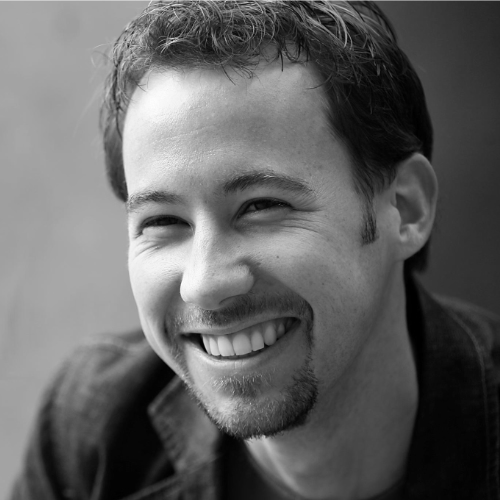
Tom van Laer is an Associate Professor of narratology at the University of Sydney Business School. He is an expert on the science of how storytelling works and studies storytelling, social media, and consumer behaviour. Though he has won awards for his academic research, teaching, and media exposure, Tom counts winning his high school’s story recital competition in 1995 as his most impressive accomplishment.
Jadey O’Regan
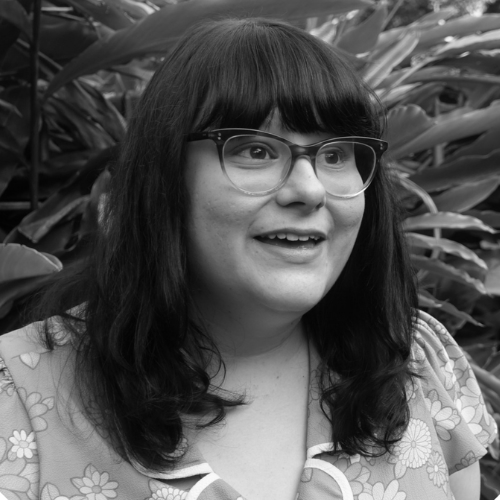
Jadey O’Regan is a Lecturer at the Sydney Conservatorium of Music. She teaches into the Bachelor of Music Studies (Contemporary Music Practice) program and her research interests include the musical analysis of pop music, empirical musicology, and the development of visual representations to best represent the unique qualities of popular music.
Tim Byron
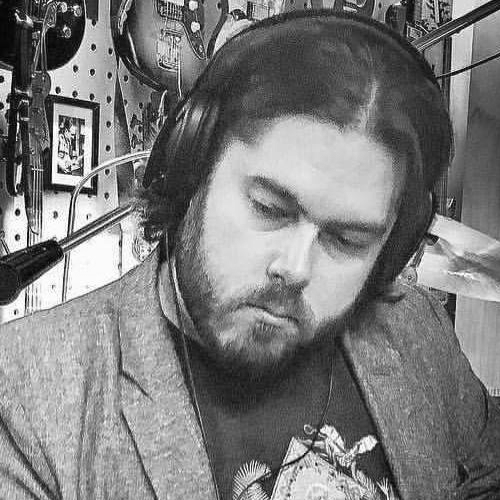
Tim Byron is a Lecturer at the University of Wollongong’s School of Psychology. His research focuses on music psychology, and in particular the way that music interacts with memory and the way that our expectations about music influence the way that music interacts with our memories.
Toni Traub
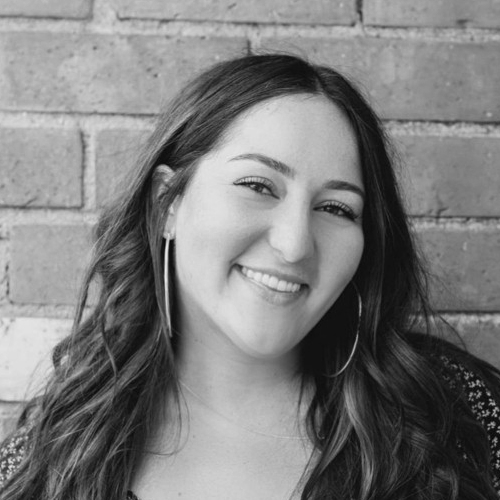
Toni Traub is a supply technician at the Amundsen-Scott South Pole Station in Antarctica. She has been featured in Newsweek, Business Insider and Buzzfeed News for her educational videos on TikTok showcasing life in Antarctica.
Hank Shocklee
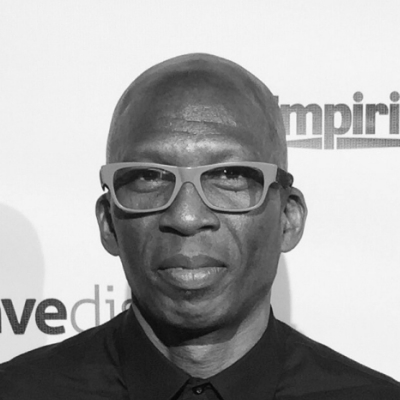
Hank Shocklee is a Grammy-nominated producer, sound designer, music executive, culture-evolver, and sonic architect best known for founding Public Enemy and the Bomb Squad. He is a mentor at the NYU Tisch School of the Arts, a member of the STEAM Advisory Board at the Boston Academy of Arts, and regularly lectures at the Berklee College of Music and the Clive Davis Institute of Recorded Music at NYU.
We’d also like to thank A/Prof Charles Fairchild for discussing the history of music with us and Barney from TikTok for his sunny disposition. You’ll hear from Charles in a future deep dive episode.
Links for the curious
Barack Obama’s 2021 summer playlist
Masked Wolf reacts to being on Obama’s playlist
Our 2019 episode of The Future, This Week discussing Old Town Road and the yee-haw challenge
Sandra and Kai doing the #yeehaw challenge
Fleetwood Mac’s Dreams returns to Billboard’s top 10 after more than four decades
Nathan Apodaca’s (420doggface208) viral TikTok featuring Fleetwood Mac’s Dreams
The 2019 version of Astronaut in the Ocean on Soundcloud
The official 2020 music video for Astronaut in the Ocean
Jennifer Lopez’s March 2021 video with over 1.4 million likes dancing to Astronaut in the Ocean
Patrick Mahomes’ Instagram post from December 2020 featuring Astronaut in the Ocean
Radioactive, Rita Ora’s hit song from 2013
The Bunnings Warehouse theme featuring Nicki Minaj (remix)
Jadey and Tim’s 2018 articles on deconstructing Kendrick Lamar’s HUMBLE and SZA’s The Weekend
Jadey’s 2017 talk at Raising the Bar Sydney on the entire history of pop music in one hour
The music video for Billie Eilish’s hit 2019 song, Bad Guy
Toni’s TikTok channel featuring Antarctic life
Lil Nas X’s 2019 interview with Time Magazine discussing Old Town Road and social media
Old Town Road becomes the first song in history to reach 15x-platinum status
TikTok reached 1 billion monthly active users in September 2021
Hank Shocklee’s interview with Berklee College of Music on blurring the lines of music genres
You can follow The Unlearn Project on Apple Podcasts, Spotify, Google Podcasts, Podcast Addict, Overcast, Pocket Casts, Stitcher, or wherever you get your podcasts.
You can follow Sydney Business Insights on Flipboard, LinkedIn, Twitter and WeChat to keep updated with our latest insights.
You should also check out our weekly podcast The Future, This Week unpacking the news that’s changing the future of business.
Is there something you think we need to unlearn? Send your ideas to sbi@sydney.edu.au. We read your emails.
Music by Cinephonix and the Open Goldberg Variations
Dr Sandra Peter is the Director of Sydney Executive Plus at the University of Sydney Business School. Her research and practice focuses on engaging with the future in productive ways, and the impact of emerging technologies on business and society.
Kai Riemer is Professor of Information Technology and Organisation, and Director of Sydney Executive Plus at the University of Sydney Business School. Kai's research interest is in Disruptive Technologies, Enterprise Social Media, Virtual Work, Collaborative Technologies and the Philosophy of Technology.
Share
We believe in open and honest access to knowledge. We use a Creative Commons Attribution NoDerivatives licence for our articles and podcasts, so you can republish them for free, online or in print.
Transcript
This transcript is the product of an artificial intelligence - human collaboration. Any mistakes are the human's fault. (Just saying. Accurately yours, AI)
AUDIO The former president of the United States, Barack Obama has said that you're on his playlist? Yeah, yeah, and then for the comments were like, "Really? Barrack Obama? Astronaut in the Ocean?"
Sandra How does a song by Sydney a rapper published in 2019 by a small label in Melbourne,
Kai A song that went largely unnoticed for almost two years.
Sandra How does it, all of a sudden, make it to Obama's 2021 Summer Playlist?
Kai The surprising answer to this question has some quite profound implications for what we do with music, what music is for, and ultimately, what music actually is.
Ole Obermann I do see a pretty profound impact on just the global nature of music as a result of TikTok, but also just kind of music streaming overall.
Sandra That's the Global Head of Music at ByteDance, and TikTok, Ole Obermann.
Ole Obermann It's so much more possible for a song that comes out of Australia to end up becoming a global hit, and to be listened to by audiences all over the world. And I think that's a pretty amazing byproduct of platforms like TikTok, because you just totally knock down the barriers of distribution and audience building.
Kai So it turns out hits are not just made by people listening to music on the radio, or even on Spotify, but by using songs to make videos on TikTok.
Ole Obermann Gets us to what I think is a really profound change in the role of music. Many more people feel that they can be creative using music today than ever in history.
Sandra Okay, so what is this profound change, and what exactly is music for? In this episode, we bring you music producers, TikTok creators, narratologists, musicologists and key figures in the industry as we figure it all out.
Ole Obermann There's a great Australian artist, Masked Wolf.
Kai And, of course, we talked to him too.
Masked Wolf What up, it's your boy, Masked Wolf, and you might know me for my hit song Astronaut in the Ocean.
Sandra In this episode of The Unlearn Project, why music is no longer just for listening.
Sandra I'm Sandra, Peter.
Kai I'm Kai Riemer.
Sandra Welcome, to The Unlearn Project.
Sandra About three years ago, there was…
Kai All our episodes now going to start with about a few years ago,
Sandra No, but this one is because it's important to understand how we got here. About three years ago, there was this young 19-year-old guy from Atlanta, Georgia who was making headlines around the world. The story goes, he had dropped out of college, he was living at his sister's house, he was a bit lonely, and he bought a beat online for $30, switched it up and wrote a country song.
Kai Country trap, really.
Sandra He posted his song on Soundcloud, tweeted it and eventually ended up on the Billboard Hot 100. The song was also charting on the Billboard Country chart where it reached number 19, before mysteriously disappearing.
Kai Quite unceremoniously, Billboard had pulled the song from its Hot Country Songs chart because, you know, it wasn't country enough. They said that Old Town Road just didn't embrace enough of today's country music elements.
Sandra This move enraged the internet.
Kai The internet was angry.
Sandra The conversation was picked up on Twitter, on social media, in the New York Times, and ignited a public conversation about genre and about race on the Billboard country charts. That 19 year-old was Lil Nas X and he's black.
Kai And so the charge was that country music mainstream does not welcome black crossover musicians and that this kind of genre gatekeeping is just a front for racism.
Sandra Enter country music royalty, and father of Miley Cyrus, Billy Ray Cyrus. He also thinks this is clearly a country song and rerecords the song with Lil Nas X.
Kai And the song took off, again.
Sandra Again. The remix won the Country Music Association Awards, Lil Nas X signed with Columbia Records, and the song made it to the top of the Spotify list and the global Apple Music charts. Billy Ray Cyrus happens to be white,
Kai And it was about that time, right, that you had coffee with your friend.
Sandra Yeah, my friend who pointed out that Old Town Road had first been really big on TikTok and had I heard of the hugely popular yee-haw challenge. I was like –
Kai We were like, what's going on on TikTok and what the hell is the yee-haw challenge?
Sandra Many hours later,
Kai Many, many hours later
Sandra As we emerged from a deep, deep rabbit hole of 15 second videos of people shopping in supermarkets and walking backwards on escalators and,
Kai Dancing and lip synching and,
Sandra People hanging around in normal clothes and when the beat changes, transforming into cowboys and cowgirls.
Kai Yeah, that was the yee-haw challenge.
Sandra All on a Chinese run social media platform that allows anyone to record and post short videos, and there were hundreds and 1000s of videos with the #yeehaw on TikTok, almost all of which used the bit of Old Town Road.
Kai And it turned out that Old Town Road's success came from its massive popularity on TikTok. The song was then streamed on YouTube and on Spotify to the tune of over 100 million a week, and for weeks, breaking its own record over and over achieving the three highest weekly us streaming totals in history.
Sandra And at the time, we filed this as a curious side effect of the popularity of what was still a fairly new social media platform, Tiktok. Remember, this is back in early 2019 and we were just relieved that there was finally something new happening in the platform space.
Kai About a year later, a man named Nathan Apodaca went viral after he posted a video of himself on TikTok. He was just gliding down a highway on his longboard, casually drinking cranberry juice from a bottle while lip synching to Dreams, The Fleetwood Mac hit.
Sandra To be clear, the number one hit Dreams from 1977, that Dreams. But when music from before I was born, and again, to be clear, not before you were born.
Kai Yeah, true, but hardly the point.
Sandra When Dreams makes it back into the Billboard Top 10 after more than four decades after its release, it becomes rather obvious that something's really changing in how music works.
Kai Yeah, it wasn't people buying albums, or listening to music on the radio, or even LastFM on the internet. And wasn't even people listening to entire songs, it was something new. People were using just 15 seconds of a song to create short videos on TikTok.
Sandra
We realised that we were seeing the beginnings of a real shift in what people do with music that has implications far beyond this new social media platform, far beyond TikTok. So this year, when Astronaut in the Ocean appeared on Obama's playlist, we realised we really have to do this episode, we have to tell the story. And we have to unlearn music.
Kai And to do that, we have to first figure out how does it actually work? What is it like to be a creator on TikTok? And how does music help tell stories in just 15 seconds?
Sandra Because just imagine what this means for the music industry as a whole. If music now gets discovered and used differently, how does it change how hits are made and how music is produced and sold? A change potentially as big as the advent of the radio? And how does it change the way music is used to tell stories and raise awareness for all kinds of issues? And ultimately, what does this all mean for what music is?
Kai And who better able to tell the story Ole Obermann?
Ole Obermann I'm Ole Obermann, I'm the Global Head of Music, at ByteDance and TikTok.
Kai And before Ole was at ByteDance, the Chinese company that owns TikTok, he was Chief Digital Officer and Executive Vice President at Warner Music Group.
Ole Obermann Masked Wolf, you know, he originally released some music in 2019 and it found a bit of popularity, but now his music has gone through the roof on TikTok in the last six months, and it's become globally well known. He's in the charts, not only in the ARIAs, but the Billboard charts in the US and the Official Charts Company in the UK. He appeared on Jimmy Fallon in the US recently and this guy's become kind of a global superstar artist on the back of a couple of his songs really blowing up on on TikTok. 10s of millions of people have created videos using his music. For every creation that happens, there will be you know, X 1000s of views of the video, which includes the song and then you immediately see a correlation when that happens on TikTok to the popularity of those songs on the more traditional music listening services like Spotify or on Apple or on Amazon.
Sandra And the really interesting thing here is that Masked Wold only gained this huge popularity once people started to use his song.
Masked Wolf The song was released in 2019, it only became heavily popular sort of two years after the release. I was writing about why I felt out of place and I thought of just space and an astronaut, and I just said what's the opposite? And then I thought of astronauts in the ocean. The song sort of entails me feeling out of place, the reasons why I felt out of place. And I guess like, when COVID came around, and that's when sort of the rise of Astro started happening.
Sandra And maybe the song became popular during the pandemic, because that's what everyone felt like, somewhat anxious and out of place, just like the astronaut in the ocean.
Kai Yeah, or maybe it was the mask, you know, Masked Wolf, just the right wolf for the pandemic,
Sandra Pandemic, yeah. Any which way, the song took off, and it took off thanks to its popularity on TikTok.
Masked Wolf I think platforms like TikTok are just a massive catalyst to get it to more ears in a very quick amount of time, like all it can literally take is one TikTok video that has two point something million likes. And then from there, these people can tell other people and then those people can tell other people and it's just like a chain reaction.
Sandra And for Astro, 18 million TikTok videos makes for a whole lot of likes. But what's really significant is the 18 million people who decided to create all those videos with the song in the first place.
Kai And we'd be remiss here not to mention that even Jennifer Lopez, he had JLo dance to Astro on TikTok.
Sandra So it's not just people getting to see videos featuring the song and then listening to the full song on streaming platforms, but all those millions of users creating 1000s or millions of videos, using just that little bit of the song, and then driving its popularity.
Kai And it wasn't just TikTok anymore either, right? NFL superstar Patrick Mahomes, the Kansas City Chiefs quarterback, he used Astro in one of his Instagram posts, and the song then went to number one on the Shazam Hip Hop Charts.
Sandra But, still, how does this actually work?
Ole Obermann Now it's incredibly easy, frankly, for even someone who's not a trained musician to express themselves using a musical track or even a clip of a musical track. But putting that to a video, and then telling a story really through the combination of the audio and the video.
Masked Wolf It's just literally hey, here's a random funny moment that I might have got on my film on my phone, and you might find this sound that sounds really cool with it. And all of a sudden, you're a creator, and you've got 1.2 million likes on a video that you thought was going to get 100 likes.
Ole Obermann And I think that's what's really profound about what's happening with TikTok, is you know, you have literally 100 million, hundreds of millions, of people who are telling stories and creating these kind of derivative works, where they're picking the right song, they're picking the video that tells the story they want to tell. And they're really very creative and very clever about how they put those things together.
Sandra And the music is really important here, the 15 seconds, or 30 seconds, or 60 seconds, can provide the canvas for the challenges.
Kai Yeah like the yeehaw challenge,
Sandra Or the microwave challenge, or the flip the switch challenge. All these challenges where hundreds or hundreds of 1000s of people make videos just attempting to do the same thing.
Kai And the music helps them set the tone
Sandra Right, it provides the vibe for the thing.
Ole Obermann And I think the role of the audio, or the song, is it really sets the mood, it creates this, you know, we talk about vibes a lot a TikTok and I think that's a really big deal that people are creators, people who are making these videos in these short form videos, they are choosing the song that kind of emanates the vibe that they want to put around the story that they're telling.
Kai Okay, maybe we need to have an example here. What is it like to choose that song to set the vibe in the video?
Pasha Grozdov There was a song by Rita Ora, Radioactive, that is from 2013 and I had this idea of creating throwback videos to make people feel good, to just think back before COVID and to kind of give them that sense of you know, home and sense of comfort.
Sandra So we called in Pasha to find out how he works with music on TikTok, and what's it like to create these videos.
Pasha Grozdov My name is Pasha Grozdov and I'm a content creator at TikTok and a student at the University of Sydney.
Sandra So Pasha visited us in the studio to tell us all about how he works with music on TikTok.
Pasha Grozdov I looked at Rita Ora's Radioactive and I realised no one's made any music with that song and I decided to film a short 10 second video. And the idea of it was essentially a throwback, and I was playing a Kmart shopper and put a background of Kmart on the video and I was just pretending to look around the clothes and homewares and the caption was "it's the year 2013, you're shopping at Kmart and it's before COVID. You're living your best life" and Rita Ora's Radioactive is playing in the background. And it went viral because it brought back the old memories and the idea of going to Kmart and that feeling of shopping around and that's how I ended up using that song.
Kai So this is really about picking a song and narrating a story or communicating that mood or a feeling.
Sandra Picking a song or picking a number of songs. Like, Pasha also talked about mashups, how sometimes people bring together two or three songs to create something altogether new.
Kai Oh, yeah, like that Bunnings Warehouse song mashup that he told us about.
Pasha Grozdov So there was this trend where they did a mashup of Nicki Minaj and the Bunnings Warehouse music, and oh my god, I loved it. It was so amazing, like it was just so fun. Like, honestly, imagine you're having a bad day and you go on TikTok, and you see Nicki Minaj, singing to Bunnings music, like wouldn't that just make your whole day, like nothing matters once you hear that.
Kai That is so true.
Sandra That's so cool. And these are like short videos, right? Seven seconds, ten, maybe 15 seconds.
Kai Yeah, and it turns out that a 10 second video, sometimes all it takes on TikTok for people to really get excited about an idea or indeed about a song.
Pasha Grozdov So I would say that seven seconds of, you know, a song can definitely throw it into the chart, I'd say definitely the TikTok videos being you know, seven to 10 seconds on average, using those best parts of songs actually presents music in a different way in a more, I guess, engaging way.
Sandra And that's just fascinating, isn't it, the fact that music just works differently through TikTok, these videos are short, like very, very short, and music helps tell these stories.
Ole Obermann I'm amazed at how much storytelling people put into what is sometimes only like a 15 second video, right? You watch it and so much happens. And you lose sort of perspective on the fact that that was only 15 seconds, because people are just so creative at what they can do with this short period of time.
Sandra And here's where some of you listening to this are going "Oh, come on, seriously, how much storytelling can you actually do in 15 seconds?"
Kai And that is a fair question. And so we thought, maybe we should ask an expert. And luckily, we have one of those here at the University.
Tom van Laer My name is Tom van Laer, I'm an Associate Professor of Narratology at the University of Sydney.
Sandra So Tom is basically a professor of storytelling, and we were determined that this point, to find out if that extends to 15 second stories.
Kai Yeah, and since he's just on the other side of the building, we made him come into the studio so we could grill him about what makes a good story and whether or not it could be done in just 15 seconds.
Tom van Laer So for story, you need two things, for a good story, you need three things. A story has a plot and a character. A plot means, you know, a number of events that are connected a character, we know what a character is. That's the minimum for a story. Obviously, you can do that in 15 seconds. For good story, you need a third thing, which is a dramatic curve. And some of them have that, some of them are able to do that, but some, you know, they don't have the time to develop the drama, to develop the climax. If that's not there, it's a story but it's a bad one.
Sandra And this is the fascinating bit, right? It turns out that this is where the music comes in. When a particular song becomes popular, and people use the same clip over and over again, in their videos, the song serves as the common story element across all those videos.
Tom van Laer You create something called a metanarrative, what you then get is a certain cultural capital ,or cultural knowledge that is already there. So then every new iteration is just added to that. And if you're on the inside, if you're in the know, then that is still something you could easily follow because you see the one video of 15 seconds only as another event in the bigger story.
Kai And that's exactly what we see with these challenges on TikTok, right? Like the yee-haw challenge, remember, when people change into cowboys and cowgirls always on that same beat change in Old Town Road.
Sandra It also just explains why people choose to make their own videos with a clip that is already popular because they can just contribute to this existing metanarrative.
Tom van Laer If you riff off a particular piece of music and basically make slight, different changes every single time there was a new clip that somebody uploads, you know creates, then that is the same effect. Basically, there is a format that people sort of agree on, not explicitly, but implicitly agree on. And within that format, they make slight changes, but not too much.
Sandra And then storytelling works well even in those 15 second videos.
Kai So then it's really a social effect, right? It's like social storytelling with the music, like a shorthand that provides the context for all the videos.
Tom van Laer So what saves you enormous amounts of time, which you normally need to build up suspense in a story, is if people already know what is coming, or that something is coming, let's put it that way. So that allows you to need to tell a good story, one that has something that builds up the suspense in 15 seconds. Otherwise, you know, it would have to be 15 minutes.
Sandra But Pasha was also saying earlier that you want to select the right bit of the song, the one that has a recognisable element, the one that showcases the music in the right way, the bit that's going to engage the audience, and Ole was talking to us about that, too.
Ole Obermann We've always talked about the hook of the song, there is a build or there is a drop, or there's some moment in that three minute song where the hook comes in. And that's the thing that really catches your ear and catches your, your senses almost. And that's the thing you can't get out of your head. TikTok works very similarly, creators are finding the hook and they're using the hook of the song in their video. More often than not, the hook gets discovered early on, which is what creates the popularity and the engagement.
Sandra So now comes the million dollar question, what makes a good hook? So a musicologist, a psychologist, a podcaster, and the sound editor walk into a bar. Well, actually we met them at the university coffee shop, to find out more.
Jadey O'Regan Hi, I'm Dr Jadey O'Regan, I'm a lecturer in contemporary music at the Sydney Conservatorium of Music at the University of Sydney.
Tim Byron And hi, I'm Dr Tim Byron, and I'm a lecturer in the School of Psychology at the University of Wollongong.
Jadey O'Regan We, in our research, I think, are figuring out that there's all different kinds of hooks. So it's not just like an AC/DC guitar, you know, guitar riff at the start of one of their tracks, even though that's a fantastic hook, what producers I think are doing now are being really economical about hooks in that they'll have one single hook that is performing many duties at once. So it might have a really interesting rhythm behind it, it might have, you know, some interesting changes in chords, it could have an interesting sound like it could be some sort of effect, like an auto tune, or a filter or some sort of way that you know, draws the ear to it going, "oh, that's a bit novel and interesting." So we often find that the hooks that are really really successful in very successful songs are performing many duties at once. Well, a really great example is a song from a couple of years ago called Bad Guy by Billie Eilish. And that's a particularly interesting one because the end of the chorus section where she she sort of sing speaks "I'm the bad guy, derr" has kind of eight or nine things really going on at the same time.
Tim Byron Yeah, there's all sorts of stuff in there, there's like a weird, when she sings "bad," there's like a weird sort of,
Jadey O'Regan Like an effect,
Tim Byron Effect on her voice that makes it sound a bit like Darth Vader
Jadey O'Regan Or a fan, or something.
Tim Byron It's doing interesting musical stuff in terms of, it's the bit in the song where it sort of falls down to the tonic, which is sort of the bit you most expect to hear.
Jadey O'Regan So it feels like it resolves, you're like "oh, I can breathe out now."
Tim Byron The rest of the music falls out so you pay attention to that bit, something new has happened, so it's a sense of novelty there.
Jadey O'Regan A pause which kind of makes you lean forward and go, "what's she gonna say?"
Tim Byron It kind of goes with a certain vibe, a certain kind of setting of something in the music. So if the song in general is putting across a certain kind attitude, and that bit of the song encapsulates that really well.
Jadey O'Regan Yeah, and so when she leaves that pause and then comes back and actually punctures everything because she's not singing it, she speaks it, and it's like "derr," so nineties, whatever. There's a sense of humour in it too, it's funny, and so that's just one tiny line that's got all these things happening, no wonder it was such a huge hit, there's so much to love about it.
Kai So what the TikTok creator really does is find that hook that allows them not just to tell their story, but to provide the catchy, that easily remembered but that other people then can latch on to to tell their story.
Sandra And that's a very different way of engaging with music, right? It's not just passively listening to songs, but music's becoming this thing for creating, for self expression, for telling the story, for creating mood.
Kai Yeah, absolutely, it's very different, isn't it? And that's the point here. The way people engage with music on TikTok is dramatically different to what we would do when we listen to the radio, or listen to music on streaming platforms, such as Spotify, for example.
Ole Obermann The user experience on Spotify, obviously there is a proactive element to it. But most people don't use the service that way. They they click on a song, a playlist, an album, and then they sit back and the music you know comes at them. And they consume, they, they I would call it passively consume that music. The experience on TikTok is completely different, the metric that we look at most sort of thoroughly is the creations that happen with a song.
Sandra So, unlearn music,
Kai Unlearn music,
Sandra Yeah, unlearn what music is for. Music is no longer just for listening. That's what's changing, and ultimately,
Ole Obermann You do have to redefine what, quote unquote music is, right?
Kai Right, because music is also a material for creating. And, we could just leave it here, but what are the implications of all this?
Sandra What's the so what?
Kai Yes, so what?
Ole Obermann So, I think this is an ever evolving format, short form video on TikTok and, and the role that music, audio, sounds play in that will evolve along with it. And the amazing news for, you know, the music industry, for artists, for labels, for publishers, everyone who is in that ecosystem is, it just becomes this incredible outlet where the engagement with music is off the charts, and that's what we all want. We want people you know, to be to be engaging with music, to be discovering music, to be creating, to be viewing, to be listening.
Kai So there's a number of implications here, right for all kinds of stakeholders, not just the TikTok creators, but also the artists and musicians and all of us listeners and music lovers and ultimately, the entire music industry.
Sandra So let's take a look at some of these implications, first, for creators. Platforms like TikTok, or Douyin, or YouTube, or Instagram, or Bilibili, you name it, increasingly allow anyone, anywhere in the world to create with music to tell stories. And everyone we talked to kind of made this point. Anyone, literally from anywhere can be a creator. And we have to be fair at this point and say a bit like you're probably thinking right now… "anyone? Anywhere?"
Kai We were like surely not quite anyone, anywhere, really? Well,
Sandra Challenge accepted.
Kai Challenge accepted. How about the South Pole?
Toni Traub So I mostly made TikTok for my mum. And then now over a million people follow me which is insane. My name is Antoinette, I go by Toni, and I currently live at the Amundsen Scott South Pole Research Station as a Supply Technician for PAE.
Kai So when you spoke to Toni back in June, it was in the middle of winter,
Sandra It was, and it was cold, so cold.
Toni Traub I just checked the weather today, it is negative 65 degrees Celsius, with a negative 112 degrees Celsius windchill?
Kai That is insanely cold.
Sandra It was a very, very cold and dark day in June.
Toni Traub You know, I haven't seen the sun since February, or March.
Sandra And Toni is a fantastic example of how a platform like TikTok allows anyone to tell their stories from the strangest of places.
Toni Traub I am a supply technician down here, so I help the station with moving supplies around as necessary. So it's anything from grabbing a pencil for the galley to bringing our food up to the station, to supplying the scientists with tools to help use the telescope.
Sandra And she tells great stories about the stuff that's going on in this really remote part of the world.
Toni Traub When I started making TikToks it was just little clips of here's what I have going on outside. My very first video was like a seven second long, the last plane taking off. And I'm like, well, we're stuck here for 10 months now. Now I just like to show the science that goes on here. So I've been interviewing the scientists and they try to explain, you know, the neutrinos and the kind of science experiments that go on down here. And we're trying to discover, you know, answers to the universe down here, it's incredible.
Sandra And so what started out as a way to stay in contact with family became a way to connect with millions of people.
Toni Traub TikTok has given me that power of storytelling, which is incredible. It's not something that I was looking for, or expected, but it's a it's a happy plus. I like to be able to share what I'm doing here with the people who are interested. I am the 270 something woman to have ever wintered over at the South Pole. It's an incredible honour and to be the first social media viral person here, I feel like I have a representation to uphold for all the people that have done this before.
Sandra And Toni is also quite deliberate about the music she chooses.
Toni Traub In my early videos I chose a lot of this one band that I particularly love, they're called Fruit Bats, I saw them in Santa Cruz, California, and they're not a very large band globally, so I thought it'd be really cool to put the music on my TikToks to give them some boost.
Kai Okay, The Fruit Bats, never heard of them, have you?
Sandra Actually, yes. Because I've seen Toni's videos.
Kai Yeah that's kind of the point here, isn't it?
Sandra It is kind of a point because it's not just about incredible storytelling with music as material. But it also provides this entirely new opportunities for bands and artists like The Fruit Bats to have their music promoted to entirely new audiences.
Kai Yeah, maybe even go viral and make it really big, like, you know, Masked Wolf.
Sandra Exactly, because when creators like Toni pick their songs, they can bring local artists to global audiences.
Ole Obermann You know, I do see a pretty profound impact on just the global nature of music as a result of TikTock, but also just kind of music streaming overall, right? It's so much more possible for a song that comes out of Australia, or India, or Korea, or Japan, or Saudi Arabia, you know, to end up becoming a global hit, and to be listened to by audiences all over the world, regardless of even the language that the lyrics are in. And I think that's a pretty amazing byproduct of platforms like TikTok, you just totally knock down the barriers of distribution and of audience building.
Sandra So platforms like TikTok are becoming also a great place for artists to release or to promote their music straight to creators.
Kai But this inevitably also raises the question, will artists now make music specifically targeted at these creators on platforms like TikTok, who only use this small part of a song?
Sandra Well, yeah, like Lil Nas X did make his song for platforms like TikTok, he even talked about how he like made the Old Town Road to do well on social media, and then promoted it for months as a meme until it caught on on TikTok. And this was all at a time where people were not really seeing the potential of platforms like TikTok to make hits, real hits.
Kai And, and it did pay off for him right, big time.
Sandra It did, like Old Town Road did make music history, it became the first song ever to reach 15 times platinum. And for a while he was like The Beatles, even kids were singing this right in kindergarten.
Sandra So we asked Masked Wolf the same question to, would he now make music for platforms like Tiktok? So music designed to do well with creators?
Masked Wolf I never made Astro to be on TikTok. I didn't even know what TikTok was when I released Astronaut. I make music based off what I'm feeling and what I think is a cool melody, not, I think this chorus is going to get captured on TikTok and I could have another song that does well.
Kai So, obviously not every artist is creating for TikTok now, and I guess time will tell what the impact on the artistic side will be. I mean, pop songs have certainly gotten a fair bit shorter in recent years. Many are just two minutes long now when three or four minutes used to be quite normal just a few years ago.
Sandra Oh speaking of pop songs, Taylor Swift,
Kai Taylor Swift?
Sandra Yeah, her fans,
Kai The Swifties?
Sandra The Swifties, created this Wildest Dreams trend where they use the hook from her 2014 original song to tell all these stories about getting over people or getting over events. And anyway the trend and slowly shifted into this slow zoom filter, which now involves lip synching as the filter zooms in. Anyway, Taylor Swift just re-released Wildest Dreams Taylor's Version, a re-recording of the original saying, "I saw you guys got Wildest Dream trending on TikTok, thought you should have my version."
Kai So, she was clearly following the trend on TikTok and used the momentum that was building to create a new version of her original song.
Sandra Yeah, she made the new version, a new single, she was like make it Taylor's version please. And people embraced it. Then like a few hours, there were 1000s of videos using the new version of the song.
Kai And that's really another interesting thing about music as material for creation, right? It does allow for these comebacks. Everyone we spoke to made this point, including Ole, about long lost songs that are back in the charts. Like remember Dreams, the Fleetwood Mac song, that original version made a comeback in the charts after 40 years.
Ole Obermann Yeah, and it's just amazing. You have to keep in mind, the majority, I would say 90% of the people, the users, the creators, who are making a video using that song, they were probably born 20 years after that song was released.
Sandra So on the one hand, artists can have their songs discovered
Kai Or rediscovered,
Sandra And on the other hand, TikTok also presents this great way to discover to find new music. Be it a creator looking for a unique song to tell their story, or any of us, any music lover, just looking to just find good music.
Kai Yes, because with all these millions of people from diverse backgrounds,
Sandra And TikTok alone has over a billion monthly users, that's a billion people every month.
Kai Yeah, and all those people using music as a creative material like Pasha, such platforms have become a great place to discover different songs and different genres and new styles of music.
Pasha Grozdov I always look for music through TikTok, to be honest. Every single day there'd be a song I'd never heard of, and I ended up either using that song for one of my videos, or just adding it on my Spotify playlist and playing it. So songs that I never heard of, you know, those songs that never charted, they somehow become popular because someone just starts interacting with it and using it in a very creative way.
Sandra And because people only hear the hook of a song, like this really short piece of a song, they can hear a lot of songs in a very short amount of time.
Kai So this makes these creative platforms a great place for anyone to discover new music.
Pasha Grozdov And because videos are very short, it doesn't take people a long time. So if you're on an app for an hour, you can listen to 100 songs, and you're not going to listen to the whole duration of the song, you're just going to listen to the best 10 seconds of that song. And so that's how essentially, you can just cover you know, hundreds and 1000s of songs in a day that are not just you know, trending or viral, but also that other creators are just using because they like it.
Sandra Okay, so music as material to make things with rather than just listen to. It's enabling new forms of storytelling.
Kai Even at the South Pole, right?
Sandra Even at the South Pole. It's providing new opportunities for artists to promote their music, and it's letting all of us discover music in new ways.
Kai There is one other stakeholder group that has had, and still has to do the most unlearning, and that is the rest of the music industry, the labels, the agents, promoters.
Sandra Yeah, and here's where it gets really interesting because they've always struggled with the idea that recorded music can be creative material, material for creating new stuff, as Ole'
Kai And remember, Ole was at Warner Music before he headed up music at TikTok and ByteDance.
Sandra As Ole points out, the industry was initially quite reluctant to have their songs used on TikTok.
Ole Obermann Musical rights holders, as well as really any intellectual property rights holders, were not comfortable with that, because, in their minds it was we produce a song and the song is meant to be consumed in the way that we produce it. And so if if the fans and the users are now, you know, kind of taking that apart and reorchestrating that, that's not really the intended use case of what we are putting out into the world, right? There was a lot of resistance for many, many years.
Sandra And this is a big point, because for an established industry, in this case, the music industry, unlearning is hard. I think quite often we are presented with disruption and change as inevitable. But Ole and the music industry in this case, remind us that unlearning is hard and sometimes even impossible. What Ole was hinting at is that this idea of using short clips of music to make things has a precedent in artists and musicians using them and that historically, the music industry opposed it very strongly. Back then it was musicians as creators, rather than everyone as creators. And the place this resistance was most visible over the years was in hip hop.
Kai Because hip hop was built around the idea of using bits of existing songs, sampling, to make new music. When hip hop emerged on the streets of New York in the late 70s and 80s, the music industry reacted very negatively to the idea of music as material for creation. And really, they failed to see this as anything but stealing. And it's kind of hard to remember,
Sandra Or even imagine if you're TikTok user.
Kai Yeah, but it's hard to remember that at some point, the practice of using short clips of music to create something new was a mindset shift that the industry was unwilling to make.
Sandra And so we had to speak to someone who was there at the very heart of the debates on copyright laws, at a point when unlearning just failed to happen. He's in the Rock and Roll Hall of Fame, a Grammy-nominated producer, DJ, sound designer, music executive, cultural revolver, and the founder of Public Enemy and the production team, The Bomb Squad.
Kai Actually, more accurately, we had our sound editor Megan talk to one of our idols.
Hank Shocklee My name is Hank Shocklee, I'm a producer, sound engineer, sound designer.
Sandra Who's had groundbreaking artistic and commercial success with Public Enemy,
Kai Which is, without a doubt, one of the most influential hip hop groups in history/
Sandra Public Enemy and The Bomb Squad who were pioneers and masters of sampling using dozens of short pieces of music to create these dense soundscapes as the backdrop for the vocals of rap artists.
Hank Shocklee One of the thing that I was doing, and I was a big stickler for, was not to be able to take a four bar loop or a two bar loop and loop it, I want to do something that was a little bit different, I wanted to take shorter pieces, to make up the greater, the bigger piece. So the concept of what we consider to be micro-sampling was kind of done, because at the time, we didn't have much sample time. And that led to creating what is, to me, a more unique and a more condensed style of making music.
Sandra But the music industry really didn't see it that way and brought lawsuits after lawsuits to effectively outlawed the free use of even the smallest micro-samples as material to make new music with.
Hank Shocklee It kind of like, it hindered our style from, you know, because of all the lawsuits that was happening from artists that was taking just two bar or four bar loop and just making the entire record. And so now it became cost prohibitive to be able to clear your samples. Well, right now, sampling is an art form that has deemed itself basically for the elites.
Sandra And so the industry cemented music as something to listen to, and not use, more or less killing off the sampling practices that had marked the emergence of hip hop as an art form.
Hank Shocklee And I do believe that the sample laws should change. And I think that if there were clearer guidelines on sampling, because I do believe that it's an art form, you're not stealing anyone's music or copyright, because what you're doing is, you're just taking a sound, for example, a snare drum, you're taking a kick drum, you're taking a bass note, what you're doing is that you're using them as colours, you know, in a palette. And the problem is, is that when someone tells you that they have an ownership on the colour, red or blue, and you can't use those colours, that kind of like limits you from creating this painting, or this montage that you was trying to do. And I think that that's where sampling became a deterrent for creativity, as opposed to something that can allow creativity to flourish.
Kai So these new developments, like what's going on on platforms like TikTok could be a chance to change the music industry's approach to copyright to sampling to the use of music as material.
Sandra A chance to unlearn music, not just in how we engage with it, but more broadly, a chance to unlearn music for the industry that controls it. And maybe experimentation on TikTok will eventually convince the industry.
Hank Shocklee That's where hip hop came from, it came from the experimental side. And so what you see today is just an amalgamation of that existence. Now TikTok becomes an experimental place for you to try new ideas.
Kai And there is some evidence that the industry is indeed unlearning, as more and more tech companies like YouTube, Instagram, and indeed TikTok, enable creating with music. And as Ole points out, music labels now allow and actually promote music to be used as material on platforms like TikTok.
Ole Obermann I think the acceptance has come now because that's what the fans want, and it's a way to create more engagement with the music. But there was a lot of resistance for many years, because it was just not the way that the music industry had traditionally worked. And so I think that's a really nice case study of some of these conflicts that exist between how the music industry works, and has always worked, and how technology companies work.
Sandra But where is this all going?
Kai Are platforms like TikTok the end point of creating with music? Or are we just getting started?
Ole Obermann I think technology companies are coming at it from a perspective of, you know, how do we innovate, innovate, innovate? And to some extent, innovation means disruption, also, right? So you don't accept what has always been the norm. And you think about ways to make it better for the user experience. And then you you evolve your technology in order to make it more suitable for what the feedback that you're getting is, which is how they want to use technology. That's what's so exciting to me is like what kind of incredible creativity are we going to see from these creators moving forward? We're already seeing it and I think it will become even more interesting as we go.
Sandra So as we unlearn music as just something listen to, innovation is likely still ongoing. And music has always led video, for instance, by a few years, like think downloads and streaming and bandwidth issues. TikTok started out in China as ByteDance's Douyin, already on Bilibili, a Chinese video sharing website, the website probably most similar to YouTube, users are experimenting with telling stories using not just music as material, but video as material to create new stories with.
Kai And no doubt new technology platforms and the creativity of millions of creators of everyday people, musicians, artists, will come together to push the boundaries of what we will do in the digital space.
Sandra And that's just more unlearns for us.
Kai And speaking of more, while unlearning music we spoke to so many cool people and learned so much.
Sandra It was so much fun.
Kai So much about where music as material comes from that it made us want to share all of that with you. So we're going to do an extra episode, extra, an unlearn music deep dive that explores where it all started.
Sandra Every once in a while we will release an additional episode, a deep dive episode to explore the rich background of some of our unlearn topics. So keep an eye out soon for a background episode on where this whole unlearn music came from. Where does the idea of music as material come from? Where did it all start? What do early computers have to do with it? The history of hip hop music, the history of sampling,
Kai Which is also the history of computers in music.
Sandra And why the music industry finds unlearning music just so hard. Basically more good stuff.
Kai Just more good stuff.
Sandra This was The Unlearn Project. Our sound editor was Megan "well you were good, but you ain't no Hank Shocklee" Wedge. And this episode and additional nerdy stuff was written by Sandra Peter and Kai Riemer. We had help with bits and pieces from the entire SBI team and Barney from TikTok in sunny Cornwall.
Barney Oh, hi there. How are you?
Sandra If you're wondering about the music you're hearing right now, it's yet another one of the Bach Goldberg Variations, a public domain recording made possible via a Kickstarter project and used by us because it's beautiful, and more importantly, free. If you want to know a little more about the topics and research in our podcasts, or for a full nerd out, our shownotes are available at sbi.sydney.edu.au/unlearn. The Unlearn Project is a production of Sydney Business Insights and initiative of The University of Sydney Business School. You can follow us on LinkedIn, Twitter and WeChat. You can subscribe like or leave us a positive rating wherever you get your podcasts.
Close transcript







